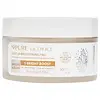What's inside
What's inside
 Key Ingredients
Key Ingredients

 Benefits
Benefits

 Concerns
Concerns

 Ingredients Side-by-side
Ingredients Side-by-side

Water
Skin ConditioningButylene Glycol
HumectantNiacinamide
SmoothingMethylpropanediol
Solvent1,2-Hexanediol
Skin ConditioningCaffeine
Skin ConditioningPhenoxyethanol
PreservativeHydroxyacetophenone
AntioxidantPEG-60 Hydrogenated Castor Oil
EmulsifyingSodium Citrate
BufferingOctyldodeceth-16
EmulsifyingDisodium EDTA
Allantoin
Skin ConditioningXanthan Gum
EmulsifyingCaprylyl Glycol
EmollientEthylhexylglycerin
Skin ConditioningCitrus Aurantium Bergamia Fruit Oil
MaskingCitric Acid
BufferingCitrus Aurantium Dulcis Peel Oil
MaskingTocopherol
AntioxidantGluconolactone
Skin ConditioningDipotassium Glycyrrhizate
HumectantAcetyl Glucosamine
Skin ConditioningSalix Alba Bark Extract
AstringentPalmitoyl Tetrapeptide-10
Skin ConditioningGalactomyces Ferment Filtrate
HumectantLactic Acid
BufferingGlycyrrhiza Uralensis Root Extract
Skin ConditioningCaprylic/Capric Triglyceride
MaskingCetyl Palmitate
EmollientSorbitan Stearate
EmulsifyingPolysorbate 80
EmulsifyingSodium Benzoate
MaskingHydrogenated Lecithin
EmulsifyingWater, Butylene Glycol, Niacinamide, Methylpropanediol, 1,2-Hexanediol, Caffeine, Phenoxyethanol, Hydroxyacetophenone, PEG-60 Hydrogenated Castor Oil, Sodium Citrate, Octyldodeceth-16, Disodium EDTA, Allantoin, Xanthan Gum, Caprylyl Glycol, Ethylhexylglycerin, Citrus Aurantium Bergamia Fruit Oil, Citric Acid, Citrus Aurantium Dulcis Peel Oil, Tocopherol, Gluconolactone, Dipotassium Glycyrrhizate, Acetyl Glucosamine, Salix Alba Bark Extract, Palmitoyl Tetrapeptide-10, Galactomyces Ferment Filtrate, Lactic Acid, Glycyrrhiza Uralensis Root Extract, Caprylic/Capric Triglyceride, Cetyl Palmitate, Sorbitan Stearate, Polysorbate 80, Sodium Benzoate, Hydrogenated Lecithin
Centella Asiatica Leaf Extract
Skin ConditioningGlycerin
HumectantButylene Glycol
HumectantWater
Skin Conditioning1,2-Hexanediol
Skin ConditioningHydroxyacetophenone
AntioxidantAcrylates/C10-30 Alkyl Acrylate Crosspolymer
Emulsion StabilisingTriethanolamine
BufferingDiglycerin
HumectantPanthenol
Skin ConditioningPropanediol
SolventPaeonia Suffruticosa Root Extract
Skin ProtectingAllantoin
Skin ConditioningAdenosine
Skin ConditioningTremella Fuciformis Polysaccharide
Emulsion StabilisingGlycyrrhiza Uralensis Root Extract
Skin ConditioningPortulaca Oleracea Flower/Leaf/Stem Extract
AntioxidantPaeonia Lactiflora Extract
AstringentChrysanthemum Parthenium Extract
Skin ConditioningCamellia Sinensis Extract
AntioxidantPropylene Glycol
HumectantDianthus Chinensis Extract
HumectantPentylene Glycol
Skin ConditioningArtemisia Argyi Leaf Extract
Skin ConditioningGlucose
HumectantCentella Asiatica Extract
CleansingSodium Hyaluronate
HumectantCaprylhydroxamic Acid
Maltodextrin
AbsorbentPhenoxyethanol
PreservativeCaprylic/Capric Triglyceride
MaskingPEG-40 Hydrogenated Castor Oil
EmulsifyingLecithin
EmollientMagnolol
AntioxidantMadecassoside
AntioxidantHydrogenated Lecithin
EmulsifyingEthylhexylglycerin
Skin ConditioningAsiaticoside
AntioxidantHexylene Glycol
EmulsifyingStearic Acid
CleansingCholesterol
EmollientCeramide NP
Skin ConditioningBisabolol
MaskingHouttuynia Cordata Extract
Skin ConditioningCentella Asiatica Leaf Extract, Glycerin, Butylene Glycol, Water, 1,2-Hexanediol, Hydroxyacetophenone, Acrylates/C10-30 Alkyl Acrylate Crosspolymer, Triethanolamine, Diglycerin, Panthenol, Propanediol, Paeonia Suffruticosa Root Extract, Allantoin, Adenosine, Tremella Fuciformis Polysaccharide, Glycyrrhiza Uralensis Root Extract, Portulaca Oleracea Flower/Leaf/Stem Extract, Paeonia Lactiflora Extract, Chrysanthemum Parthenium Extract, Camellia Sinensis Extract, Propylene Glycol, Dianthus Chinensis Extract, Pentylene Glycol, Artemisia Argyi Leaf Extract, Glucose, Centella Asiatica Extract, Sodium Hyaluronate, Caprylhydroxamic Acid, Maltodextrin, Phenoxyethanol, Caprylic/Capric Triglyceride, PEG-40 Hydrogenated Castor Oil, Lecithin, Magnolol, Madecassoside, Hydrogenated Lecithin, Ethylhexylglycerin, Asiaticoside, Hexylene Glycol, Stearic Acid, Cholesterol, Ceramide NP, Bisabolol, Houttuynia Cordata Extract
Ingredients Explained
These ingredients are found in both products.
Ingredients higher up in an ingredient list are typically present in a larger amount.
1,2-Hexanediol is a synthetic liquid and another multi-functional powerhouse.
It is a:
- Humectant, drawing moisture into the skin
- Emollient, helping to soften skin
- Solvent, dispersing and stabilizing formulas
- Preservative booster, enhancing the antimicrobial activity of other preservatives
Allantoin is a soothing ingredient known for its protective and moisturizingg properties. Because of this, it is often added to products with strong active ingredients.
Studies show higher concentrations of this ingredient can promote wound healing.
Though it can be derived from the comfrey plant, allantoin is produced synthetically for cosmetic products to ensure purity.
Learn more about AllantoinButylene Glycol (or BG) is used within cosmetic products for a few different reasons:
Overall, Butylene Glycol is a safe and well-rounded ingredient that works well with other ingredients.
Though this ingredient works well with most skin types, some people with sensitive skin may experience a reaction such as allergic rashes, closed comedones, or itchiness.
Learn more about Butylene GlycolThis ingredient is an emollient, solvent, and texture enhancer. It is considered a skin-softener by helping the skin prevent moisture loss.
It helps thicken a product's formula and makes it easier to spread by dissolving clumping compounds.
Caprylic Triglyceride is made by combining glycerin with coconut oil, forming a clear liquid.
While there is an assumption Caprylic Triglyceride can clog pores due to it being derived from coconut oil, there is no research supporting this.
Learn more about Caprylic/Capric TriglycerideEthylhexylglycerin (we can't pronounce this either) is commonly used as a preservative and skin softener. It is derived from glyceryl.
You might see Ethylhexylglycerin often paired with other preservatives such as phenoxyethanol. Ethylhexylglycerin has been found to increase the effectiveness of these other preservatives.
Glycyrrhiza Uralensis Root Extract comes from Chinese licorice. This plant is native to Asia and used in Chinese traditional medicine. Chinese licorice root contains antioxidants and polysaccharides.
Antioxidants may help with anti-aging by neutralizing free-radical molecules. Polysaccharides help moisturize the skin due to their ability to mimic our natural skin barrier.
Hydrogenated Lecithin is created from the hydrogenation of lecithin (a group of phospholipids). Hydrogenation is a chemical reaction between hydrogen and another element.
This ingredient is an emollient and emulsifier. As an emollient, it helps soften skin by trapping moisture within. As an emulsifier, it prevents oil and water ingredients from separating.
Hydroxyacetophenone is antioxidant with skin conditioning and soothing properties. It also boosts the efficiency of preservatives.
This ingredient is not irritating or sensitizing.
Phenoxyethanol is a preservative that has germicide, antimicrobial, and aromatic properties. Studies show that phenoxyethanol can prevent microbial growth. By itself, it has a scent that is similar to that of a rose.
It's often used in formulations along with Caprylyl Glycol to preserve the shelf life of products.
Water. It's the most common cosmetic ingredient of all. You'll usually see it at the top of ingredient lists, meaning that it makes up the largest part of the product.
So why is it so popular? Water most often acts as a solvent - this means that it helps dissolve other ingredients into the formulation.
You'll also recognize water as that liquid we all need to stay alive. If you see this, drink a glass of water. Stay hydrated!
Learn more about Water